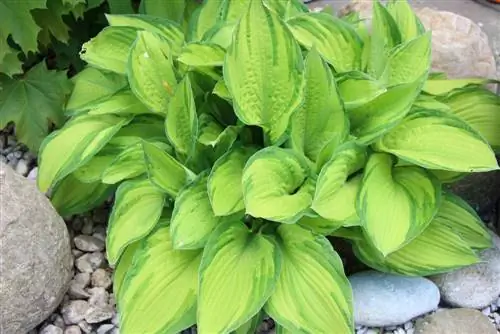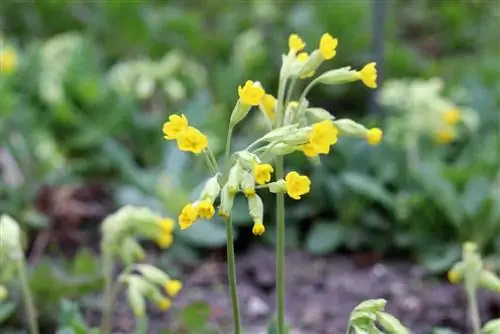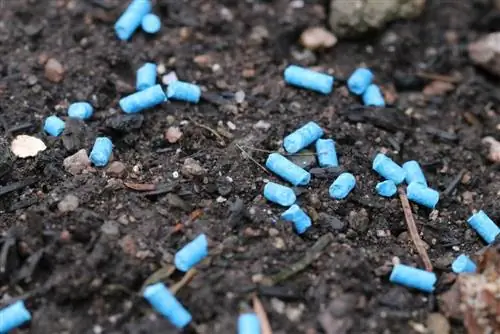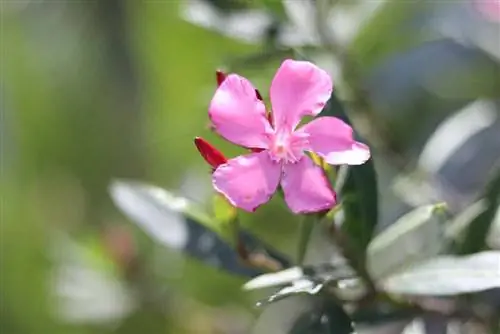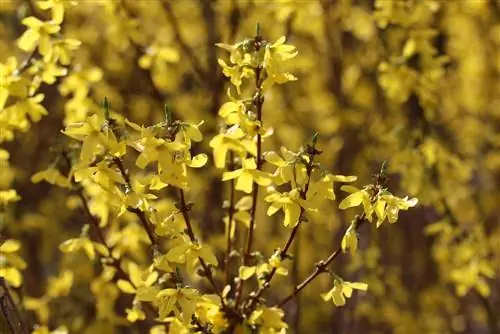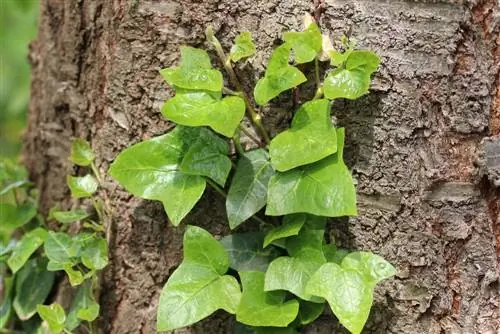- Author admin caroline@plants-knowledge.com.
- Public 2023-12-17 03:39.
- Last modified 2025-01-24 12:45.
Funkia come primarily from Japan. Since the perennials are hardy, they also thrive in the home garden. Since they cope well with partially shaded to shady locations, they are ideal plants for the dark corners of the garden. The only disadvantage of hostas is that they are on the menu of snails and other herbivores because the plants are non-toxic.
Funkia
Funkia (Hosta) are a separate genus of plants. This belongs to the subfamily of the agave plants (Agavoideae) in the asparagus family (Asparagaceae). The genus of sweetheart lilies, as the hostas are also called, includes around 22 species. In this country they are primarily used as ornamental plants.
Toxic to humans?
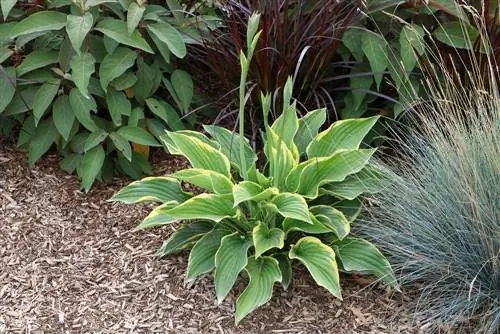
All Hosta species are non-toxic to humans. Hostas are not listed on the Bonn Poison Center website. The flower buds are used in Japanese cuisine. But the flowers are also edible. They are candied, fried, pickled in vinegar and oil or simply eaten as steamed vegetables. Since the leaves of hostas are also non-toxic, there is no danger for children who want to “try them out”. However, like the other non-poisonous parts of the plant, they are not used in the kitchen, which is why they are sometimes classified as “not edible”.
Tip:
The plant sap can cause (skin) irritation for very sensitive people.
Poisonous to animals?
Hotas are also non-toxic to many pets. These include:
- Horses
- Donkey
- Hares, rabbits
- Dogs
- Cats
- Llamas, alpacas
- Tortoises
- Cattle
- Sheep
- Pigs
- Birds
- Goats
Funkas as fodder plants
Although hostas are non-toxic to hares and rabbits, they are not recommended as a pure food plant. However, there is no danger to the animals if they like to eat hostas in the garden. The danger is more for the plant, as it suffers from the leaves being eaten away.
Note:
Since not all hares and rabbits like hostas, the plants are incorrectly classified as poisonous.
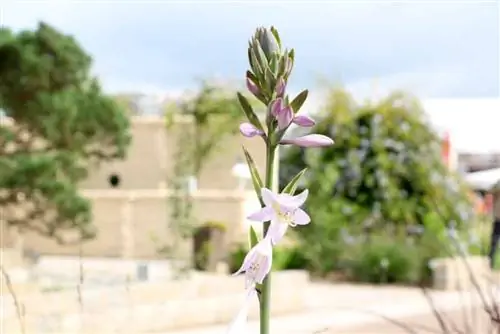
Honas provide good shade and hiding places for tortoises. Since they are non-toxic to the animals, you can plant them in the turtle enclosure without any concerns. If the turtle takes a liking to the plant, you don't have to worry about the animal. But the plant also survives the urge to eat, because turtles usually never eat hostas completely.
Dogs
Why man's best friend nibbles on plants has not yet been finally scientifically clarified. What is certain, as every dog owner knows, is that animals do this. That's why the garden, balcony or terrace in dog households should be designed with plants that are non-toxic to dogs. With hostas you don't have to worry about this because they are non-toxic for your four-legged friends.
Cats
Like man's best friend, cats also enjoy eating plants. It is impossible to predict which plant the “house tigers” prefer. This means that they can only discover a plant for themselves after years. If this is the case with hostas, you don't have to worry because the plants are non-toxic for your pet.
Likelihood of confusion
On some websites, hostas are assigned to the lily family (Liliaceae) and are therefore described as poisonous. This may come from the German name “heart leaf lily”. Botanically speaking, however, the plants are not related to each other. When planted out in the garden, there is no risk of confusion with other plants, as hostas can be easily recognized by their spirally arranged leaves, which have long petioles. However, confusion between different Hosta varieties can occur. However, since all varieties are classified as non-toxic, this is more of a visual problem than a he alth problem.
Sources:
www.gizbonn.de/284.0.html
www.lwg.bayern.de/mam/cms06/landespflege/modelle/essbare_pflanzen.pdf
www.botanikus.de/informatives/gift plants/gift-plants-and-animals/
www.vetpharm.uzh.ch/giftdb/indexd.htm

